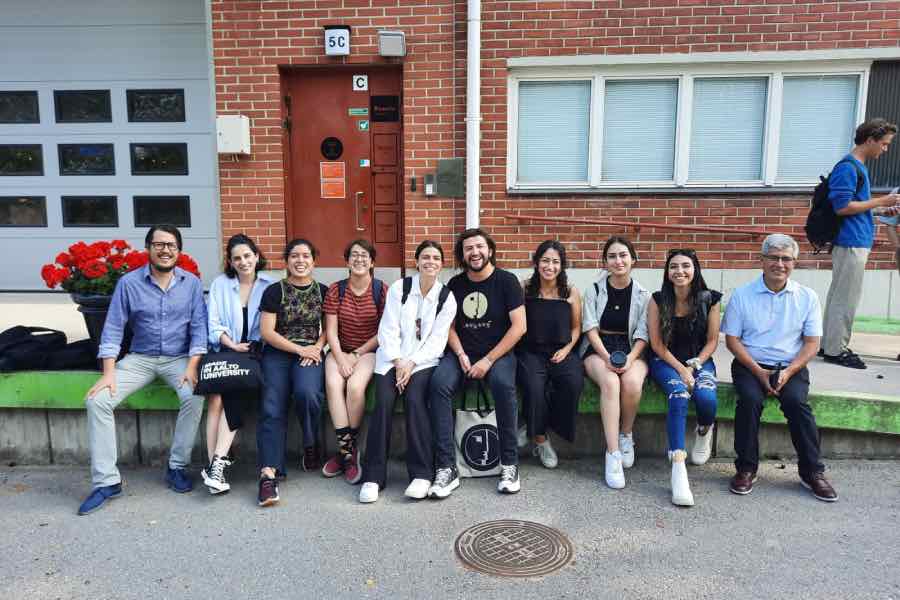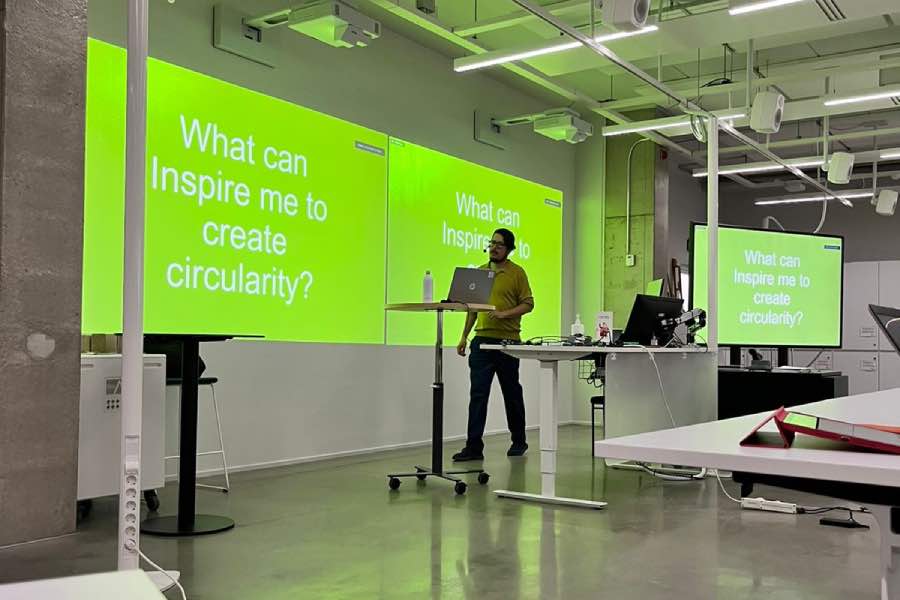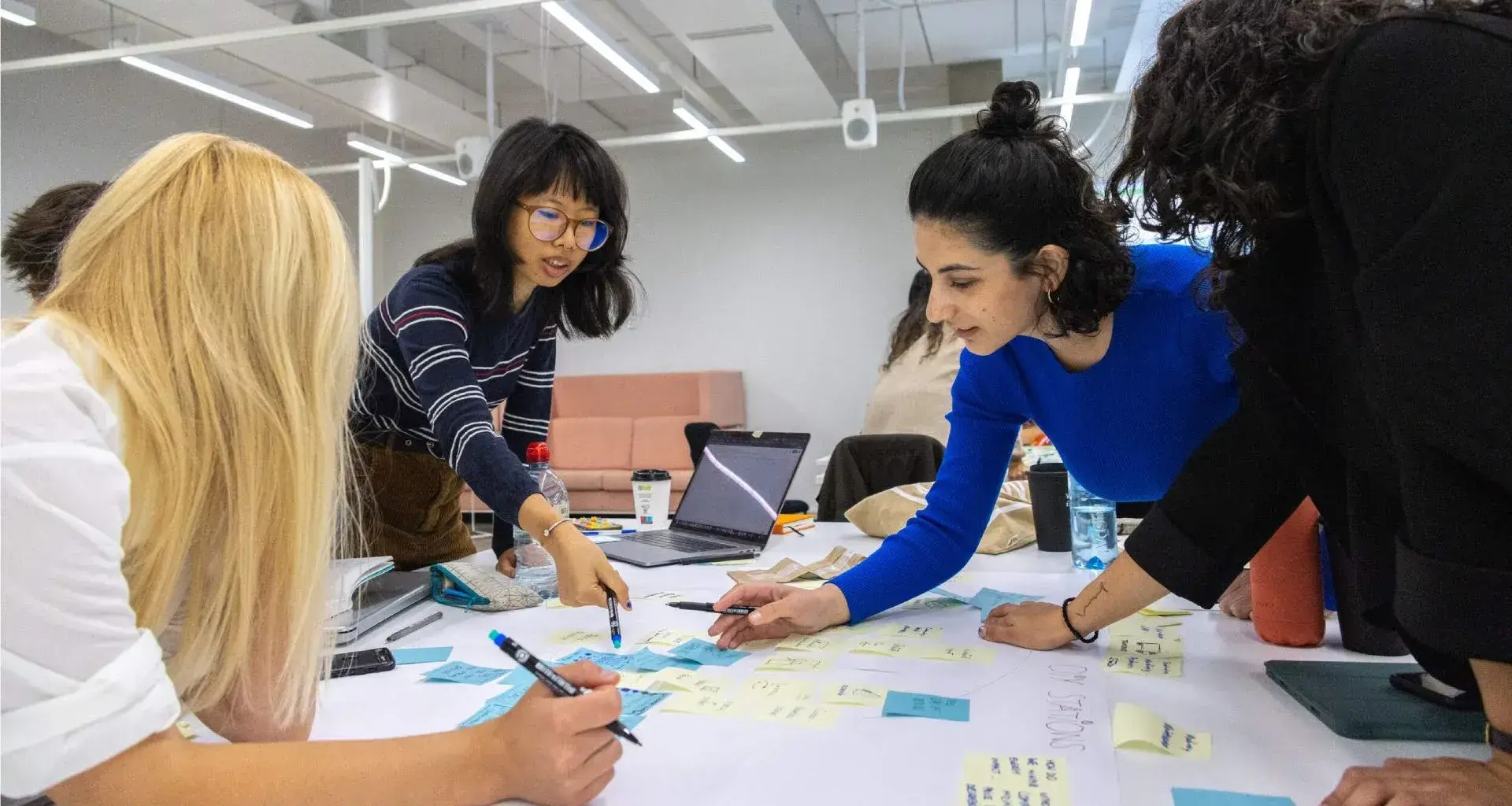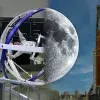How can the circular economy and co-design encourage real change?
This was one of the main questions addressed at the Aalto School of Art, Design and Architecture Summer School in Helsinki, Finland, in which eight students and three professors from the Tec de Monterrey School of Architecture, Art and Design (EAAD for its initials in Spanish) took part.
Biodesign, regenerative cultures, and sustainable design were some of the topics on the program, in which around 50 students, international professors, and experts from different fields participated.

Other universities participating were:
- Singapore University of Technology and Design
- Delft University of Technology
- Oslo School of Architecture
- Polytechnic University of Milan
- Parsons School of Design (The New School).
“It’s a great opportunity for our students and faculty to have these spaces for international mobility once again, following the restrictions we experienced during the pandemic,” said Roberto Iñiguez, Dean of the Tec’s School of Architecture, Art, and Design.
“What’s more, design can encourage important changes with these prestigious universities on such a crucial and strategic issue,” he added.
“Representing the Tec in another country means a lot. It made me realize that we have the capacity and mindset that could greatly help the global conversation."
Designing sustainable proposals
Through eight multicultural and inter-university teams, the students worked to propose circular economy solutions.
According to David Sánchez Ruano, leader of the Tec’s Design Research Group, all the schools were mixed to form the teams. They were then asked to choose a problem and at least one aspect such as a future scenario, product, or service.
“Some of the ones they focused on included fast fashion, migration, architectural issues such as furniture, and the idea of imagining a future in which cities have access to food and nearby natural resources,” he said.
Alibey Hernández, a ninth-semester Bachelor of Industrial Design student from the Guadalajara campus, worked with her team on three aspects of the problem of fast fashion.
Their proposal was based on a future scenario in which the manufacture of new materials is prohibited.
“We put together a collection of garments (products) made from scraps of different objects such as bedspreads, curtains, fabrics, etc.
“As well as a collection of accessories made from a cake mold, with different pieces made in the metal and jewelry workshop. This showed that there is a way of addressing this issue,” she said.
Alibey said they also considered developing an application, in which a service based on these products would be provided, taking into account all aspects of the circular economy.

In the case of Fernanda Ordorica, a ninth-semester Bachelor of Industrial Design student from the Mexico City campus, her team focused on proposing solutions using fashion.
“The solution we implemented was based on a speculative scenario, in which we imagined a dystopian future and how the world would be if new laws or practices that are different from what we currently know were implemented,” she said.
This student said they imagined a law proposed by the government in 2035 allowing people to have only five pieces of clothing in their closet.
“By reducing the number of garments, society would change, with new magazines and laws. We tried to describe the world as it would be if this law was implemented, for better or for worse,” she said.
“It’s a great opportunity for our students and faculty to have these spaces for international mobility once again, following the restrictions we experienced during the pandemic."
Sharing their knowledge about sustainable design
Tec professors David Sánchez, Pedro Pacheco Vázquez, and Carlos Cobreros were in charge of teaching what they know about the generation of biomaterials and methodologies for regenerative development, as well as other topics related to sustainable design.
At the Aalto Summer School, the professors had the opportunity to share the experience they had at the Tec regarding these issues.
“We’re currently working at the Tec with research groups and creating publications. These topics of regenerative design, the future, and circular and sustainable design are being taught through the Tec21 concentrations,” said David Sánchez.
According to the professor, they had the opportunity to exchange points of view with other university professors during the Summer School.
“We’ve collaborated with several of these top university professors and we’re now inviting them to teach here or to write something with us. We’ve recognized similarities between our schools on how we’re addressing these issues,” he said.

Back to international mobility
The School of Architecture, Art, and Design students said that they were grateful to have this opportunity for an international experience.
“Representing the Tec in another country means a lot. It made me realize that we have the capacity and mindset that could greatly help the global conversation,” Fernanda Ordorica said.
This experience was the first of three Summer Schools that will be co-organized by the institutions involved and with Aalto as host.
According to Professor David Sánchez, the Tec is expected to participate again next year and will also implement other educational initiatives at an international level, such as the Summer Schools in summer and winter cycles.
“We’re now working with the University of Denver, the University of Bologna, and the Catholic University of Chile to develop these intensive schools, which could last four or five weeks, allowing students to revalidate subjects,” he said.
The professor emphasized the importance of these programs since they give students the opportunity to have this international experience and help them to have a global vision and a collaborative spirit.
ALSO READ:





